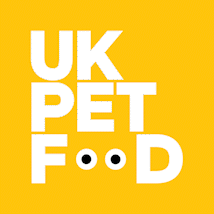
Pet Nutrition Hub
Pet Nutrition Hub - Search By Species
Our healthy weight management resources hold a whole host of fantastic tools and resources to help educate responsible feeding practices and encourage pet owners to maintain an ideal body condition in their pets.
All of our pet nutrition resources have been developed with pet professionals in mind to assist pet owners in better understanding pet nutrition. They are profesionally designed and make a great addition to pet shops or veterinary clinics. They are all available as PDF downloads to print out. If you would like any further information or to use the materials in educational content in our pet nutrition hub or anywhere else on our website, please contact the team at [email protected].
Although UK Pet Food's area of expertise is pet nutrition, we are also advocates of animal welfare. We recommend that all pet owners read about their duty of care, as outlined in the Animal Welfare Act, and understand their pet's Five Welfare Needs. The PDSA website contains expert advice on other requirements for a wide variety of pet species.





